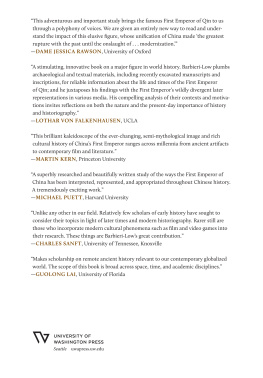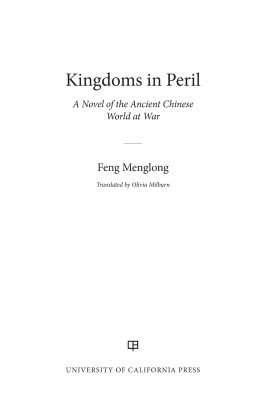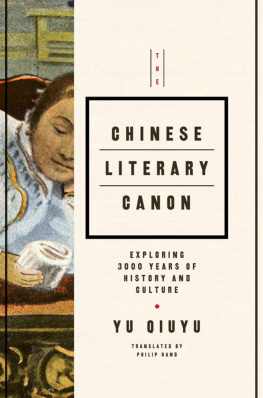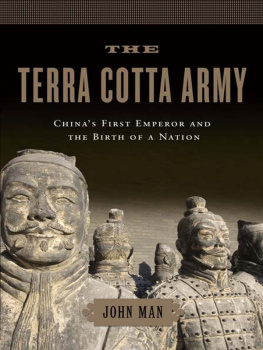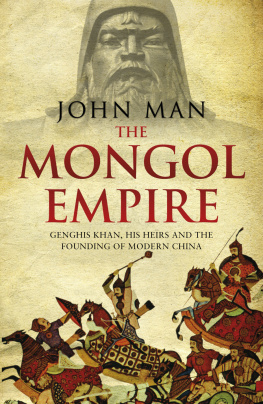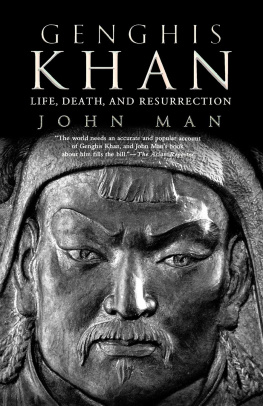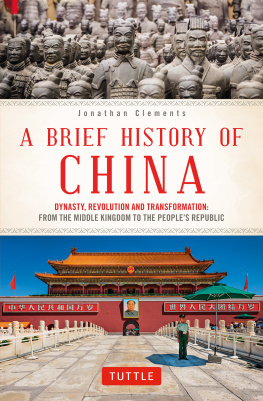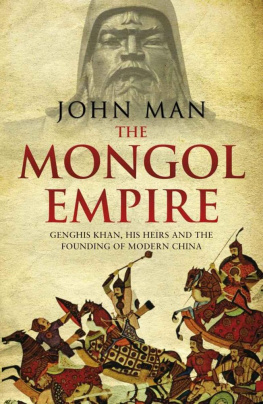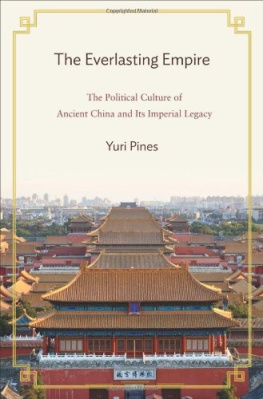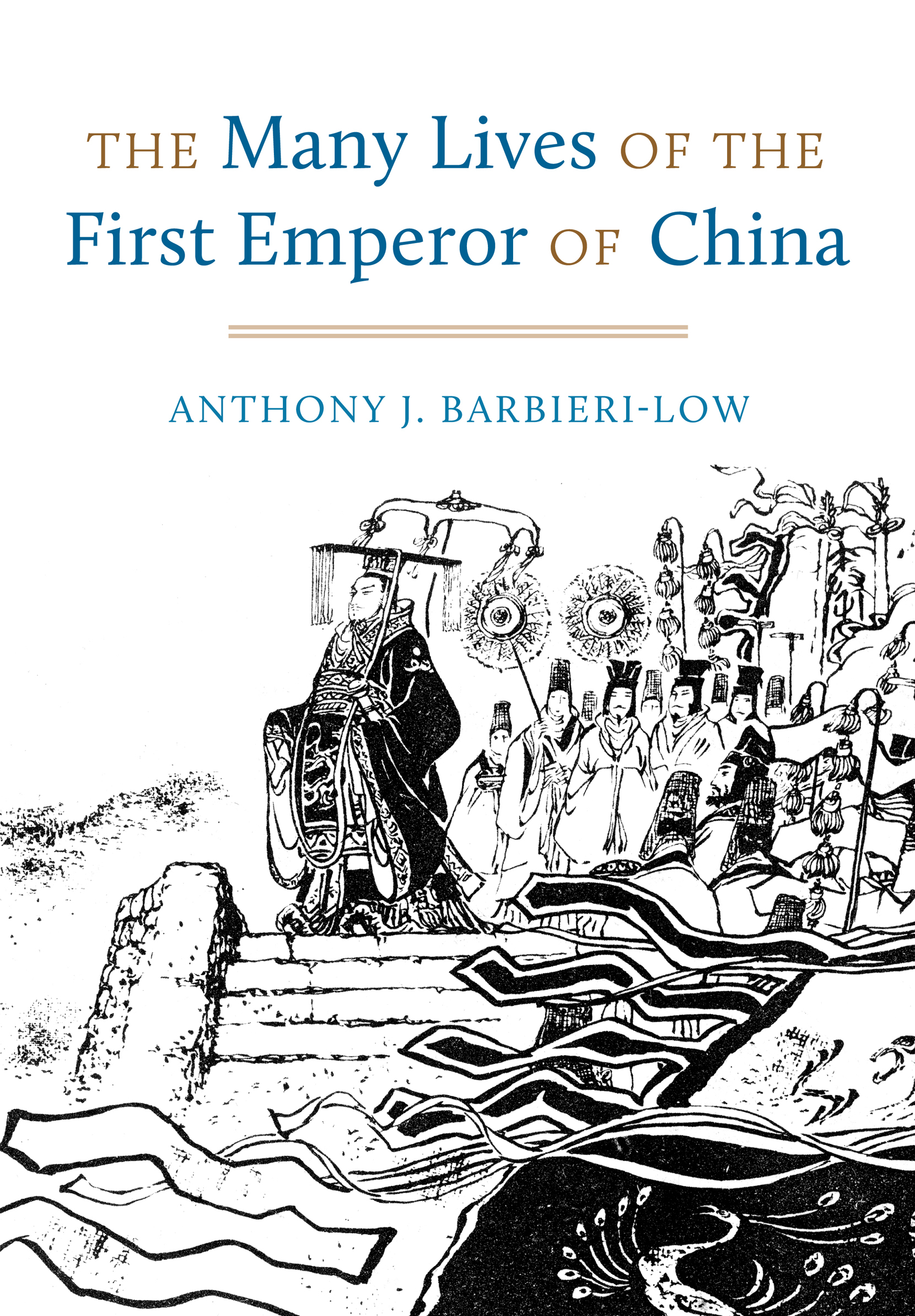Contents
List of Figures
Guide
Pagebreaks of the print version
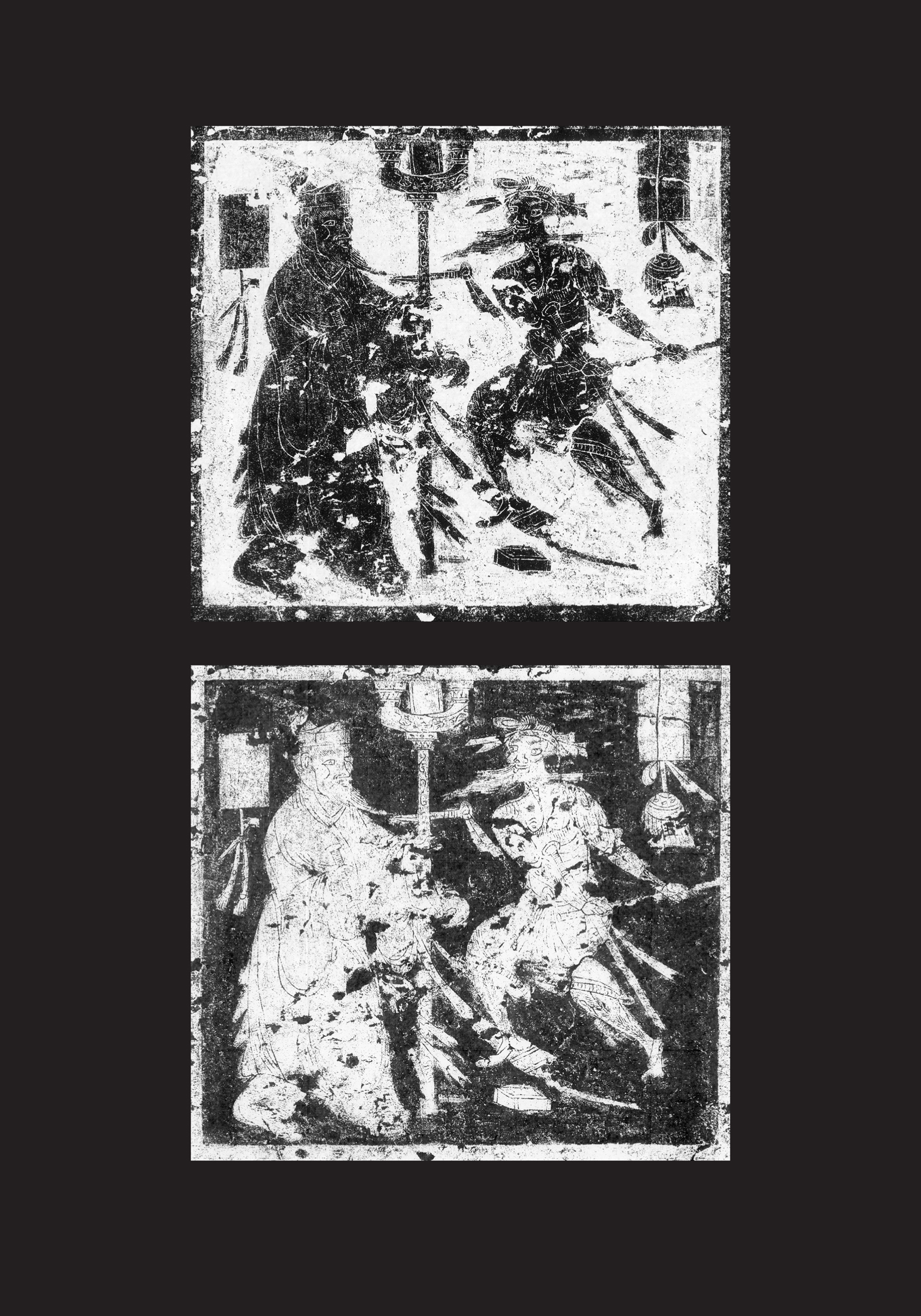
The Many Lives of the First Emperor of China
ANTHONY J. BARBIERI-LOW
UNIVERSITY OF WASHINGTON PRESS
Seattle
The Many Lives of the First Emperor of China was made possible in part by a grant from the Traditional Chinese Culture and Society Book Fund, established through generous gifts from Patricia Buckley Ebrey and Thomas Ebrey.
This publication was also supported by grants from the Chiang Ching-kuo Foundation for International Scholarly Exchange and from the Dean of Humanities and Fine Arts at the University of California, Santa Barbara.
Copyright 2022 by the University of Washington Press
Translation of Snow by Mao Zedong is from Geremie Barm, For Truly Great Men Look to This Age Alone, in A Critical Introduction to Mao, ed. Timothy Cheek (New York: Cambridge University Press), 249. Reproduced with permission of Cambridge University Press through PLSclear. A preliminary version of appeared in Barbieri-Low, Imagining the Tomb of the First Emperor of China, in Beyond the First Emperors Mausoleum: New Perspectives on Qin Art, ed. Liu Yang (Minneapolis, MN: Minneapolis Institute of Art, 2014). Reprinted with permission.
Design by Jeff Wincapaw
Composed in Warnock Pro, typeface designed by Robert Slimbach
262524232254321
Printed and bound in the United States of America
All rights reserved. No part of this publication may be reproduced or transmitted in any form or by any means, electronic or mechanical, including photocopy, recording, or any information storage or retrieval system, without permission in writing from the publisher.
UNIVERSITY OF WASHINGTON PRESS
uwapress.uw.edu
LIBRARY OF CONGRESS CATALOGING-IN-PUBLICATION DATA
Names: Barbieri-Low, Anthony J. (Anthony Jerome), 1967 author.
Title: The many lives of the first emperor of China / Anthony J. Barbieri-Low.
Description: Seattle: University of Washington Press, [2022] | Includes bibliographical references and index.
Identifiers: LCCN 2021041165 (print) | LCCN 2021041166 (ebook) | ISBN 9780295750224 (hardcover) | ISBN 9780295750231 (ebook)
Subjects: LCSH: Qin shi huang, Emperor of China, 259 B.C.-210 B.C.Historiography. | ChinaKings and rulersHistoriography. | ChinaHistoryQin dynasty, 221207 B.C.Historiography.
Classification: LCC DS747.35 .B37 2022 (print) | LCC DS747.35 (ebook) | DDC 931/.04dc23
LC record available at https://lccn.loc.gov/2021041165
LC ebook record available at https://lccn.loc.gov/2021041166
This paper meets the requirements of ANSI/NISO Z39.481992 (Permanence of Paper).
To my parents, Romolo and Gale, for a lifetime of inspiration
Contents
Preface
This project to explore the many lives of the First Emperor of China began in 2005, seemingly a lifetime ago, while I was at the University of Pittsburgh. Since childhood, I had been fascinated by tales of the First Emperor, and so I created an undergraduate seminar called Views of the Qin, which allowed my students and myself to explore the Qin dynasty from the perspectives of history, archaeology, literature, movies, comics, and video games. It quickly became my favorite course. I compiled an extensive bibliography of resources and translated numerous sources for my students. Even before I moved to Santa Barbara in 2007, I had outlined a book based on the course. My progress stalled, however, when other projects intervened. I was able to resume work on the manuscript in 2016, during a fellowship from the Chiang Ching-kuo Foundation. After drafting two more chapters, fate once again intervened, and I found it necessary to put the project aside to complete my comparative study, Ancient Egypt and Early China. The COVID-19 pandemic of 2020 and the cessation of research and lecture travel unexpectedly afforded me the opportunity to finally put down on paper the ideas I had developed when the project was first conceived and also to update the manuscript for new archaeological discoveries and recently produced cultural productions about the First Emperor.
Acknowledgments
There are many people I wish to thank for their help during this fifteen-year odyssey in search of the First Emperor. Above all, I want to thank the many students at Pitt and UCSB who enrolled in my Qin seminar over the years. Their passion for the material easily matched my own, and some of the ideas we jointly developed in seminar inspired various parts of the book. Throughout the gestation of this project, my colleague and friend Robin D. S. Yates of McGill University, a pioneer in modern Qin studies, was a constant source of inspiration and aid, and I thank him deeply for all his suggestions. I also wish to thank those persons and institutions who invited me to present parts of this research, including McGill University (Hans Beck and Griet Vankeerberghen), UCLA International Institute (David Schaberg and Lothar von Falkenhausen), the Bowers Museum, Hong Kong Baptist University (Sammy Kin-sum Li), the Archaeological Institute of America, Institute for Humanities Research (University of California, Santa Cruz), UCSB History Associates (Sears McGee), Princeton University (Martin Kern), and the Minneapolis Institute of Art (Liu Yang), as well as those scholars who suggested additional avenues of research, including Donald Harper, Martin Powers, Deborah Sommer, Katheryn Linduff, Lothar von Falkenhausen, David Schaberg, Kenneth Brashier, Charles Sanft, and Christopher Rea.
Throughout the project I have also benefited from the help of several graduate and undergraduate research assistants, including Leslie Wallace and QZ Lau, who helped with translations of literary works and map creation, and Ben Ma, Dou Lei, Li Xiang, Aaron Zhao, Ilya Bobkov, and Renee Rausch, who helped with bibliographic research and image permissions. While at Pitt, I was greatly aided by Chinese librarians Zhang Haihui and Shen Zhijia, and at Santa Barbara by librarians Cathy Chiu and Yao Chen. My colleagues at Princeton University, Dora Ching, Cary Liu, and Martin Heijdra, helped with access to rare books and other visual materials. Toward the end of the project, I benefited from the expert help of my colleague Li Xiaorong in refining some of my translations and in contacting Chinese institutions for image permissions. Xu Wen also helped contact a Chinese artist for permission to use his illustrations. And finally, I would like to thank my children (now adults), Jordan, Nicolas, and Julia, for watching numerous Qin-related movies with me over the years, and for Nicolass expert assistance in getting past certain video-game levels that were too difficult for dear old dad.
This project was funded by grants and fellowships from the Freeman Foundation (2005), the Nationality Rooms and Asian Studies Center, University of Pittsburgh (2005), the Getty Research Institute (2011), the Academic Senate of UCSB (2014), the Chiang Ching-kuo Foundation (2016), and the American Council of Learned Societies (2019).
Chronology
Shang | ca. 1500ca. 1045 BCE |
|---|
Zhou | ca. 1045256 BCE |
Western Zhou | ca. 1045771 BCE |
Eastern Zhou | 770256 BCE |
|

